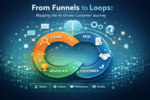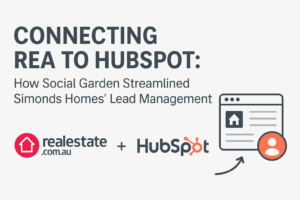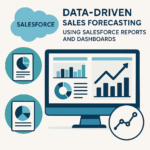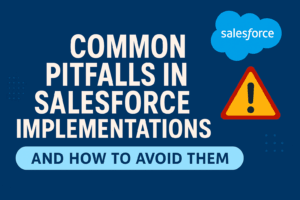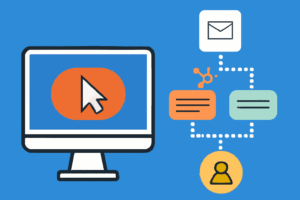BLOG
The Future of Digital Marketing Strategies
Social Garden CEO and Co-Founder speaks to DT Digital Founder David Trewern about the future of digital marketing strategies. Today, we pick David’s brain to discuss the ever-evolving digital landscape.
How is this affecting buyer behaviour and the sales process? How can organisations adapt to the latest –and upcoming– digital marketing trends in the market?
Video Transcript
MICHAEL: Hey, it’s Mike here, CEO at Social Garden. We’re super fortunate to have David Trewen here, the founder of DT Digital. David started as employee number one and built the company from the ground and today has 250 staff across four countries. He’s also board member at Social Garden, which we are extremely fortunate to have. Today we’re talking a bit about digital strategy and what it might look like in the future. First of all, thank you so much for coming.
DAVID: Great to be here.
What makes a great digital strategy?
MICHAEL: So, as a starting point, what makes it a great digital strategy?
DAVID: I think now it’s really not something you tack into the end of the marketing strategy or even tack into your business strategy. It’s really got to be front and centre as part of your overall business strategy.
I think if you look at what’s going on around the world. People now engage primarily through digital channels and means, and you’ve got a two way kind of information flow where you can learn preferences and then likes and dislikes from your customers for digital channels. That’s also how you reach them, that’s how you can buy your values and what you stand for, and obviously, sell your products and services. So, really digital strategy and business strategy really need to be welded together as one strategy.
How do people want to engage with brands today compared to 20 years ago?
MICHAEL: When you think about all that kind of, where the eyeballs are right now and kind of the way that people want to engage with brands, it’s fundamentally changed, compared to 20 years ago?
DAVID: Totally. We’re not even close to reaching peak penetration yet or utilisation of digital and digital devices. If you think about children—which is a bit scary, I’ve got kids, 8 and 11—and the way they use digital devices. When I was that age, I was drawing pictures with a pencil and playing with Lego. As these generations come through, they’re going to bring with them these different behaviours. We’ve been through this huge shift in the last ten years that’s just going to continue happening.
Behaviour is changing very rapidly. We’ve got a long way to go. We’ve got to be thinking not about where the ball is now. Where it will be 12 months from now when we actually roll out work that we’re doing or products and services that we’re doing. That’s really important. I think also this whole shift to living in the digital world has made information far more readily available.
MICHAEL: And that changes so much in terms of how customers are buying, researching products and making decisions.
DAVID: So you’re making decisions based on what your friends think. You’re seeing this election in the states with Donald Trump and the people’s opinions and fake news and everything else.
There are so many things that now influence the way that you feel about something. I think it’s really important that companies think about how they—that they really have to be really genuine and authentic. That’s just not a marketing thing actually have to re-engineer their business to really be what their customers want them to be.
And then work out how they can find those customers as well as using all these new tools and devices and data and algorithms and everything else. I think there are probably two parts to that—of winning the attention of the customer. One is connecting with them through your values and all that and the stories. Two, how you reach them through these more and more sophisticated means.
How does the future of digital marketing look like?
MICHAEL: While it might seem that digital is all around us right now, we ain’t seen nothing yet. Obviously, as you found at DT and that was kind of at the very early stages. One of the first kind of digital agencies, just the growth that you would have seen in the change in terms of the way that consumers are using tech has definitely—like you’ve got an illustration of that.
DAVID: We’ve got so far to go. I’m a firm believer that 10 years from now which will happen like that, we’ll all be buying will be buying electric vehicles, which will really be computers on wheels that can be permanently connected to the Internet.
That’s another media platform that we now have to think about what we do with it. Radio is a big media channel, a big traditional media channel, most radios we listen to in the car. When we’re driving around in our Teslas, with software updates coming through every couple of days with all sorts of alerts and pings that are connected into our watches and our phones. All of the sudden, that is another media property, our car is a media property.
And where does it go from there? Does our fridge become a media property? There’s a long way to go in terms of peak digital, I suppose. And you think about these devices are becoming ever more powerful and can do even more sophisticated things. The interface that we connect is changing. The voice and facial recognitions and all those sorts of things, it’s not going to stop any time soon. But I suppose that within that lies also a challenge and opportunity to how do you cut through the noise? That comes back to good ideas and good communication. There’s more noise and clutter than ever before as well.
Future proof business ideas
MICHAEL: Just to kind of wrap it up, if you have one general piece of advice that you think—like executives should be thinking about today. What is that idea? And what can they be doing today to kind of future-proof themselves to kind of go where the puck is going, so to speak?
DAVID: Well, I think it’s really spending a lot of time themselves to really understand, to put themselves in the shoes—I mean, this sounds really simple and basic, but to put themselves in the shoes of their customers and really understand the customer journey for their customers. And you’d find that—a CEO of any sort of business can learn so much from ten minutes hanging out on an online forum where people are talking about their products and services.
That sort of sounds really obvious. I suppose what I’m saying is really using digital to actually listen to customers. Adapt your business quickly to their thoughts and feelings and needs. I think that’s a really important thing. At least surround yourself with partners who’ve got the skills and the tools and the ability to do that for you and give you insights. Real time insights based upon what’s happening right now, which is so easy to do.
MICHAEL: Thanks very much for stopping by and having a quick chat. That was awesome. Thanks, man.
DAVID: Thank you.
Our Key Takeaways
Getting to the core of your customer’s journey by providing a personalised experience is the greatest takeaway from our chat with David.
Why? Because times will change fast. Our lives will become more and more digital but humans will still have to “cut through the noise” and connect. That’s something that, as David says, comes down to good ol.d’ ideas and communication.
What was your biggest takeaway? How do you imagine the future of digital marketing will be? Tell us in the comments below!

